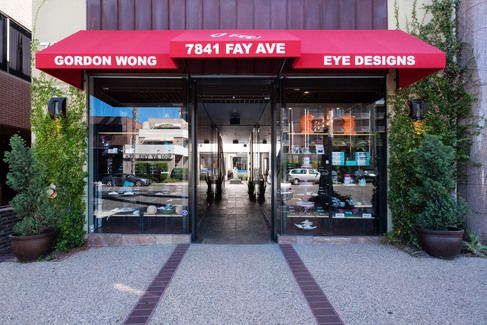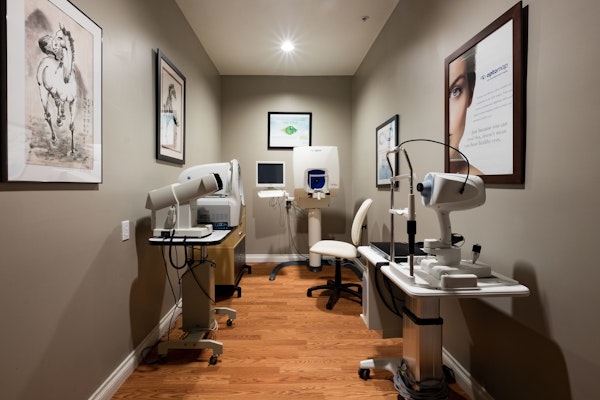All about IntraLase LASIK
 Patients who want to correct refractive errors without using contacts or glasses often turn to laser eye surgery. Laser eye surgery reshapes the cornea (the clear front part of the eye) so that light correctly focuses on the retina (back of the eye), reducing refractive errors and improving the patient’s vision.
Patients who want to correct refractive errors without using contacts or glasses often turn to laser eye surgery. Laser eye surgery reshapes the cornea (the clear front part of the eye) so that light correctly focuses on the retina (back of the eye), reducing refractive errors and improving the patient’s vision.
Dr. Gordon Wong and Dr. Wildon Wong offer many types of LASIK, including advanced IntraLase® LASIK (or bladeless LASIK) for patients in La Jolla, Carmel Valley, and San Diego, CA. Continue reading to understand what makes IntraLase technology different from other laser eye surgeries.
IntraLase LASIK vs. Traditional LASIK
The difference between traditional LASIK and IntraLase LASIK is in the first step of the procedure. In traditional LASIK surgery, the doctor creates a flap in the outermost layer of the cornea using a microkeratome blade.
However, the IntraLase femtosecond laser replaces the microkeratome blade. During an IntraLase LASIK procedure, eye doctors form the flap with a femtosecond laser instead of a blade. The femtosecond laser produces microscopic gas bubbles, rather than a hard edge, to gently create a flap in the cornea.
How Does IntraLase Technology Enhance LASIK?
Complications from LASIK are rare. But when they do occur, they usually occur due to complications with corneal flap healing.
Corneal flap issues are even more rare when eye doctors use the IntraLase femtosecond laser rather than the microkeratome blade during LASIK surgery. With a laser, it's easier and faster to create a precise incision, which can reduce the risk of complications.
Other benefits of IntraLase include:
- 100 percent of the eye surgery is performed with lasers
- Faster procedure time than other laser eye surgeries
- Shorter healing times and fewer issues associated with healing compared to other LASIK procedures
- Excellent for creating thinner flaps (and especially useful for patients with thinner corneas)
What to Expect during IntraLase LASIK Surgery
Using IntraLase technology, it only takes about 20 seconds to create the corneal flap. Then, it takes about 10 to 15 minutes for an eye doctor to complete the entire surgery. Patients are awake during the procedure, but are given sedatives to help them relax.
During an IntraLase LASIK procedure, expect the following:
Preparing the Patient
On the day of your laser eye surgery, you will be given a mild sedative to help you relax. Because this sedative will make you groggy, you will need a friend or family member to drive you to and from your appointment. Once you are in the treatment room, the doctor will also numb your eyes with eye drops and hold the eyelids open with a special eye speculum.
Creating the Bladeless Flap
During the first stage of IntraLase LASIK surgery, the eye doctor creates a flap in the cornea with little bursts of laser light instead of a blade. As these light waves pass through the cornea's outermost layers, microscopic bubbles develop to separate the flap.
Reshaping the Cornea
The doctor then uses an excimer laser to reshape the cornea into its desired shape. The doctor reshapes the cornea to reduce vision aberrations that cause nearsightedness, farsightedness, and astigmatism.
Completing the Procedure
When the cornea is successfully reshaped, the corneal flap is put back in place. The doctor will monitor the patient's rest in the post-surgical room for about an hour. Patients are groggy and cannot see clearly after laser eye surgeries, so they must arrange for a ride home. They will also be given detailed aftercare instructions to ensure a safe, successful recovery.
Learn More about IntraLase LASIK
If you have had a steady eye prescription for the past few years, do not have any serious eye diseases, and are in good overall health, you might be a good candidate for IntraLase LASIK. The procedure offers better results and faster healing than traditional LASIK, but is also more expensive, so be sure to discuss your budget with your doctor. To determine if IntraLase LASIK is suitable for you or a loved one, book a consultation at GW Eye Associates by calling (858) 454-4699 or messaging us online.







